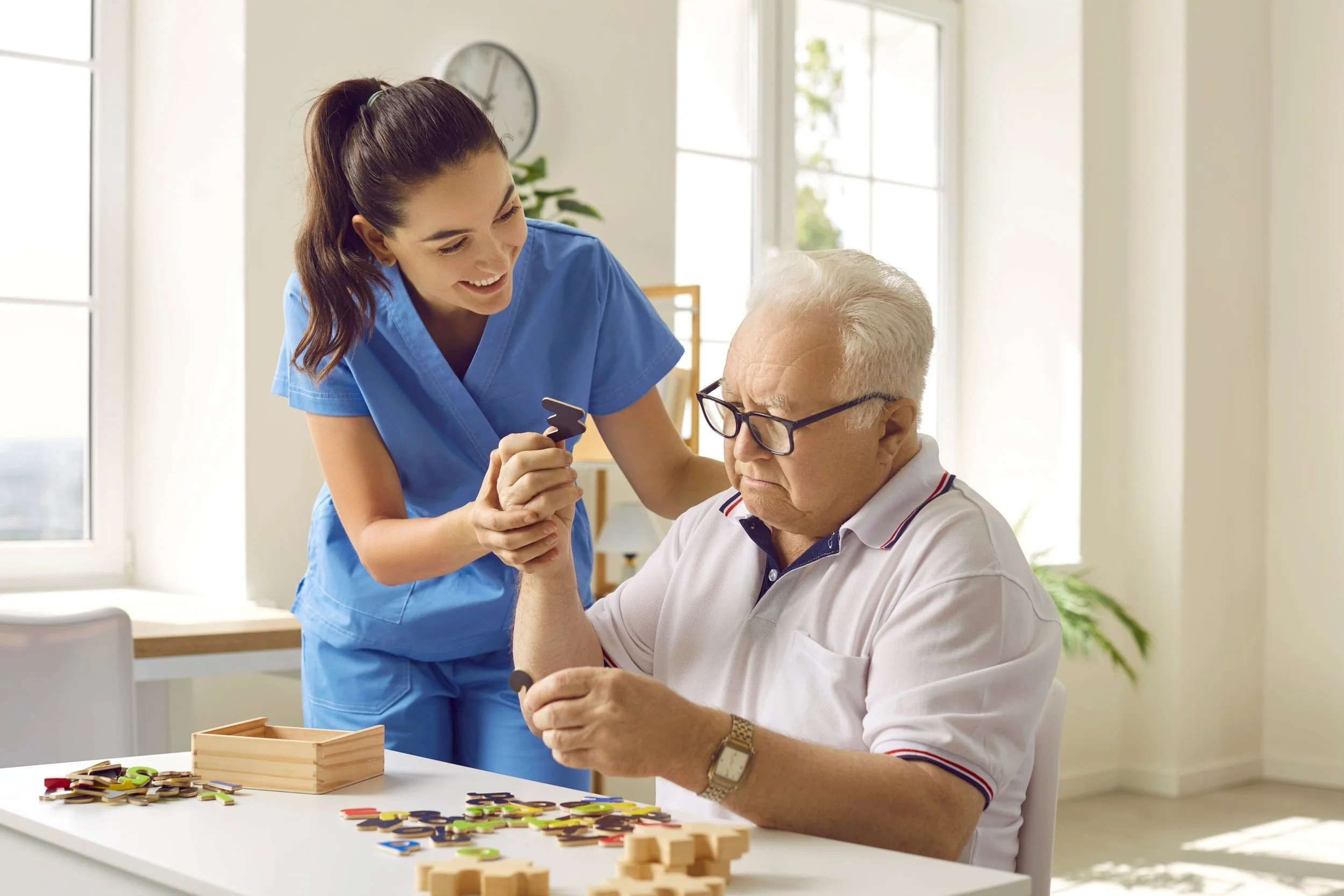How Dementia Care at Home Helps Avoid Unnecessary Moves or Facilities
For seniors experiencing cognitive decline, moving into a care facility is often seen as the default solution. However, many families find that home-based dementia care can provide the safety, support, and structure needed to allow seniors to age in place comfortably.
Aging in place, even through dementia, preserves familiarity, independence, and emotional well-being. With the right care plan, home can remain a safe and enriching environment reducing unnecessary transitions that can be stressful for seniors and families alike.
Why Home Matters for Seniors with Dementia
Familiar surroundings have a profound impact on emotional health. Moving to a facility can be disorienting, especially for someone with memory challenges. Home-based dementia care preserves:
Cognitive familiarity: Seniors recognize their environment, reducing anxiety and confusion.
Emotional security: Familiar routines, objects, and spaces provide comfort.
Personal autonomy: Daily decisions and control over routines are maintained.
Even simple elements like a favorite chair, photographs, or neighborhood routines can improve mood, engagement, and a sense of safety.
Key Components of Effective Dementia Care at Home
Dementia care at home requires a thoughtful, structured approach to ensure both safety and quality of life. Core components include:
1. Personalized Daily Routines
Structured routines reduce stress and support cognitive function. Caregivers can help seniors:
Follow predictable daily schedules for meals, bathing, and activity
Engage in cognitive stimulation like reading, puzzles, or memory exercises
Participate in familiar hobbies and social activities
Consistency provides reassurance, helps prevent agitation, and reinforces memory cues.
2. Safety Modifications in the Home
Seniors with dementia may be at higher risk for accidents or wandering. Caregivers can help implement safety measures:
Installing locks, safety gates, and alarms for doors
Adding grab bars in bathrooms and handrails along hallways
Keeping walkways clear and reducing trip hazards
Using visual cues or labels to support orientation
These modifications allow seniors to move freely while reducing the risk of injury.
3. Medication and Health Management
Managing medications safely is critical for seniors with cognitive decline. Caregivers provide:
Timely medication reminders
Assistance with administering medications as prescribed
Coordination with healthcare providers for updates or changes
Proper medication management reduces risks that could otherwise necessitate a move to a facility.
4. Companionship and Emotional Support
Social isolation can exacerbate cognitive decline. Caregivers provide companionship that:
Encourages communication and social engagement
Reduces stress, anxiety, and feelings of loneliness
Supports emotional well-being during daily routines
Caregiver presence ensures seniors remain engaged and connected, which improves both mood and cognitive outcomes.
Practical Benefits of Home Dementia Care
Reduced Facility Transitions
With consistent in-home support, seniors can remain safely at home longer, avoiding unnecessary admissions to memory care facilities.Improved Emotional and Cognitive Health
Familiar surroundings, structured routines, and companionship reduce agitation, confusion, and depression.Preservation of Independence
Home care allows seniors to perform tasks they are still capable of, maintaining autonomy and dignity.Family Involvement
Families can remain actively involved in care planning, daily routines, and emotional support without feeling the burden of full-time care responsibilities.
Tips for Families Considering Home Dementia Care
Assess Needs Carefully: Determine which tasks require caregiver support versus what the senior can safely manage independently.
Start Gradually: Part-time care or short visits can be expanded as needs change.
Prepare the Home: Safety modifications, clear labeling, and organized spaces support independence.
Coordinate with Healthcare Providers: Ensure caregivers follow prescribed therapy, medications, and health recommendations.
Focus on Emotional Well-Being: Incorporate hobbies, social engagement, and companionship into daily routines.
By addressing these areas, families can create a supportive, safe, and enriching home environment for seniors with dementia.
Why Professional Home Care Matters
While families provide essential support, trained caregivers make a significant difference in sustaining aging-in-place for seniors with dementia:
Provide structured routines and consistent supervision
Monitor safety and prevent wandering or falls
Manage medications and health follow-ups
Offer emotional support and companionship
Professional caregivers complement family efforts, reducing stress while helping seniors remain independent and fulfilled in their own home.
Even with cognitive decline, many seniors prefer the comfort and familiarity of home over moving to a facility. With thoughtful home modifications, structured daily routines, and consistent caregiver support, aging in place is not only possible but also safe and fulfilling.
At Elite Care Northwest, we specialize in providing personalized dementia care at home, helping seniors maintain independence, safety, and emotional well-being. Our trained caregivers work closely with families to:
Implement daily routines and cognitive stimulation tailored to each senior’s abilities
Ensure safety measures and fall prevention are in place
Provide medication reminders and health monitoring
Offer companionship and emotional support to reduce anxiety and isolation
By partnering with ECNW, families can feel confident that their loved ones are receiving expert support in the comfort of home, reducing the need for unnecessary moves to care facilities.



